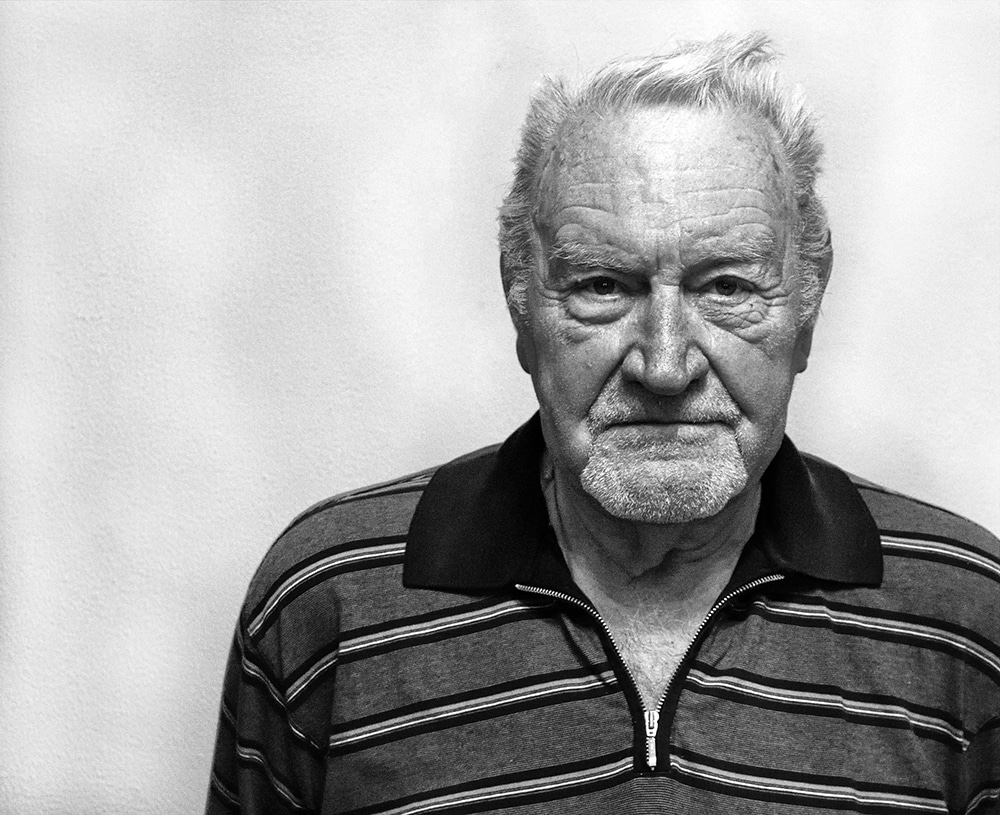
Alcohol is one of the most misused substances in the United States. According to the 2019 NSDUH, almost 15 million Americans over 12 struggle with alcohol use disorder. Unfortunately, alcoholism leads to various health problems. But, can alcoholism cause dementia?
What is Dementia?
Individuals often confuse dementia and Alzheimer’s. While Alzheimer’s is a common cause of dementia, dementia is a general term for memory loss and cognitive impairments caused by aging.
Dementia is the result of abnormal brain changes. The disorders grouped under the term dementia trigger a decline in thinking skills. Dementia can severely impact a person’s independent function and daily life as well as behaviors, feelings, and relationships.
How is Dementia and Alcoholism Linked?
Alcohol directly affects the brain’s functions. Alcoholism or alcohol use disorder damages brain cells and interferes with using good judgment and decision making.
Additionally, many alcoholics develop nutrition issues because of drinking and poor eating habits. All these factors contribute to developing alcohol-related dementia.
What are the Signs and Symptoms of Alcohol-Related Dementia?
Common signs and symptoms of dementia and alcoholism include:
- Memory loss
- Difficulty with familiar tasks
- Trouble processing new information
- Depression and irritability
- Poor judgment and loss of inhibition
- Problems remembering words
- Disorientation
- Erratic behaviors
- Personality changes
- Difficulty concentrating
- Poor decision-making
- Paranoia and hallucinations
- Damage to liver, pancreas, or stomach
- Numbness in legs and arms
- Slow, wide, stumbling gait
- Poor temperature control
- Sleep pattern disturbances
Memory Problems Due to Dementia and Alcoholism
Individuals with alcohol-related dementia generally have issues with their memory. For example, they may struggle to understand new information or details of a conversation. They may also have trouble recalling events such as where they went on vacation or where they lived before.
Dementia, Alcoholism, and Balance Issues
Alcohol-related dementia often causes balance issues even when individuals are sober. They may fall over because alcohol damages the part of the brain that controls coordination and balance.
Can Alcoholism Cause Dementia Mood Swings?
Bith dementia and alcoholism can cause mood swings. People may struggle with apathy, irritability, and depression. Mood swings make it harder for a person to stop drinking and even harder for loved ones to help.
Who Can Develop Alcohol-Related Dementia?
Any person who drinks alcohol heavily over many years can develop alcohol-related dementia. It is unknown why some heavy drinkers develop dementia, and others don’t. It may be a difference in diet and other lifestyle factors.
Typically, alcohol-related dementia affects men over 45 struggling with chronic alcoholism. However, women may also develop this disease since alcohol affects them more substantially than men. To reduce the risk of dementia and alcoholism, experts recommend drinking no more than two drinks per day.
Does Alcohol Speed Up Early-Onset Dementia?
According to Medical News Today, a study out of France found that alcohol use disorder is a major factor in all types of dementia. Researchers studied one million people discharged with alcohol-related brain damage between 2008 and 2013.
Simultaneously, researchers also studied one million people diagnosed with alcohol use disorder during that time. Nearly 40 percent of early-onset dementia cases were attributed to alcohol-related brain damage. At the same time, 18 percent had other alcohol use disorders.
Can Alcohol-Induced Dementia be Reversed?
Unfortunately, dementia is an irreversible disease. However, in some cases, alcohol-related dementia is reversible. Individuals who seek early treatment for dementia and alcoholism often see improvements.
Since alcoholism can cause dementia, individuals have to be willing to help themselves to reverse the damage. Professional help is often needed when individuals struggle with dementia and alcoholism.
Can Alcohol Permanently Damage your Brain?
Most people know alcohol has short-term and long-term effects. But, very few people realize that chronic long-term alcohol abuse does permanent damage to your brain. This damage includes:
- Withdrawal symptoms are often severe and damage brain cells. The most dangerous symptoms include seizures and hallucinations. For instance, 5 percent of alcoholics in withdrawal experience delirium tremens (DTs).
- Neurotransmitter damage slows down communication between areas of the brain
- Brain shrinkage results from gray matter loss: gray matter contains cell bodies and white matter, which controls pathways.
- Cognitive Impairment affects verbal skills, mental processing, memory, learning, and impulse control. The areas of the brain related to problem-solving and impulse control are often damaged the most. This damage typically results in alcoholism and dementia.
When Dementia and Alcoholism Leads to Wernicke-Korsakoff Syndrome
One syndrome of dementia and alcoholism is called Wernicke-Korsakoff syndrome or WKS. This syndrome is really two disorders that occur both independently and together. The two disorders are Wernicke’s encephalopathy and Korsakoff syndrome or Korsakoff psychosis.
Wernicke’s encephalopathy involves abnormal eye movements, unsteady gait, and confusion. At the same time, alcohol is not a direct cause of this syndrome as much as brain cell damage. Thiamine deficiency or Vitamin B1 deficiency is common with dementia and alcoholism due to a poor diet.
What are the Symptoms of Wernicke-Korsakoff Syndrome?
The symptoms of WKS include:
- Retelling the same stories
- Asking the same questions over and over even though they have been asked and answered
- Repeating the same information in a conversation
- Unaware these symptoms are happening
Simultaneously, individuals with WKS reason well, make accurate deductions, are witty, and complete mental games such as chess.
What is Korsakoff Psychosis?
When Wernicke’s syndrome is not treated correctly, the result is Korsakoff psychosis. Korsakoff impairs memory and other cognitive functions. Fabrication is the most common symptom of Korsakoff.
Fabrication or confabulation is making up detailed and believable stories to cover the gaps in memory. People with this form of dementia struggle to learn new things while still functioning in other mental abilities.
What are Early Warning Signs of Alcohol-Related Dementia?
If you or a loved one has continually refused help for their alcohol use disorder, it is crucial to watch for early signs of dementia. Since many people with alcoholism don’t understand the damage alcohol does to the brain, signs of dementia may push them to seek help.
Early warning signs include:
- Unexplained personality changes
- Trouble solving complicated problems
- Getting lost in a familiar area
- Short-term memory loss
- Cognitive issues
- Poor decision-making
- Confusion about time and place
- Trouble communicating
Is there Testing for Alcohol-Related Dementia?
Several medical exams are performed to diagnose alcohol-related dementia. Some doctors may insist a person stop drinking before doing these exams, but most doctors do not.
Doctors will examine the nervous and muscular systems. They look for abnormal eye movement, increased pulse, and muscle weakness. Blood work is also typically done to check nutrition levels.
Treating Dementia and Alcoholism
Chronic alcohol abuse is the cause of alcohol-related dementia. So, the first step in treating dementia and alcoholism is to stop drinking alcohol. When caught early, individuals with alcohol-related dementia are likely to see improvement with diet changes and no alcohol.
Adding vitamin B1 to your diet may help minimize the nutritional deficiency damage of alcohol use disorder. For people with Wernicke encephalopathy, vitamin B1 may prevent or reduce the risk of Wernicke-Korsakoff syndrome. However, once Korsakoff psychosis develops, improving memory loss is nearly impossible.
Therapies for Dementia and Alcoholism
Just like alcoholism, most people with dementia have irregular behavioral patterns. In addition, dementia causes psychological distress resulting in a decline in quality of life.
Although there are medications such as sedatives, antipsychotics, and antidepressants, the side effects cause most people to stop taking them. Various types of therapies are useful in treating the psychological and behavioral symptoms of dementia and alcoholism.
- Occupational therapy – helps overcome functional impairments of dementia that affect daily life
- Physical therapy – exercise can help with coordination and overall well-being by reducing falls, improving sleep, and treating depression
- Holistic therapy – yoga and mindful meditation can induce calm and stillness
- Music and art therapy – music therapy improves memory and well-being while art engages attention and meaningful stimulation
How Can Family Support Someone with Dementia and Alcoholism?
No matter what type of alcohol-related dementia your loved one struggles with, family support is crucial in their daily life. Quitting alcohol by yourself is very challenging. With family support, a person is more likely to have a lasting recovery.
Adding the struggles of alcohol-related dementia means family support is even more important. Family members can help in the following ways.
- Support their recovery – challenges of recovery can change daily
- Assist them in improving their skills – try not to do things for them but with them
- Ask professionals for advice
- Encourage daily journaling
- Break down large tasks into smaller steps
- Be patient
- Use short sentences and give them time to respond
- Label cupboards and arrange rooms making it easy to find things
- Encourage a healthy diet
- Provide them transportation to support groups and therapy for alcoholism
Seek Help for Dementia and Alcoholism at North Jersey Recovery
The best way to prevent alcohol-related dementia is to stop drinking alcohol. For many, this is easier said than done. But, at North Jersey Recovery, we design personalized treatment plans to give you the best chance of recovery. Contact us today and find out how we can help you.






